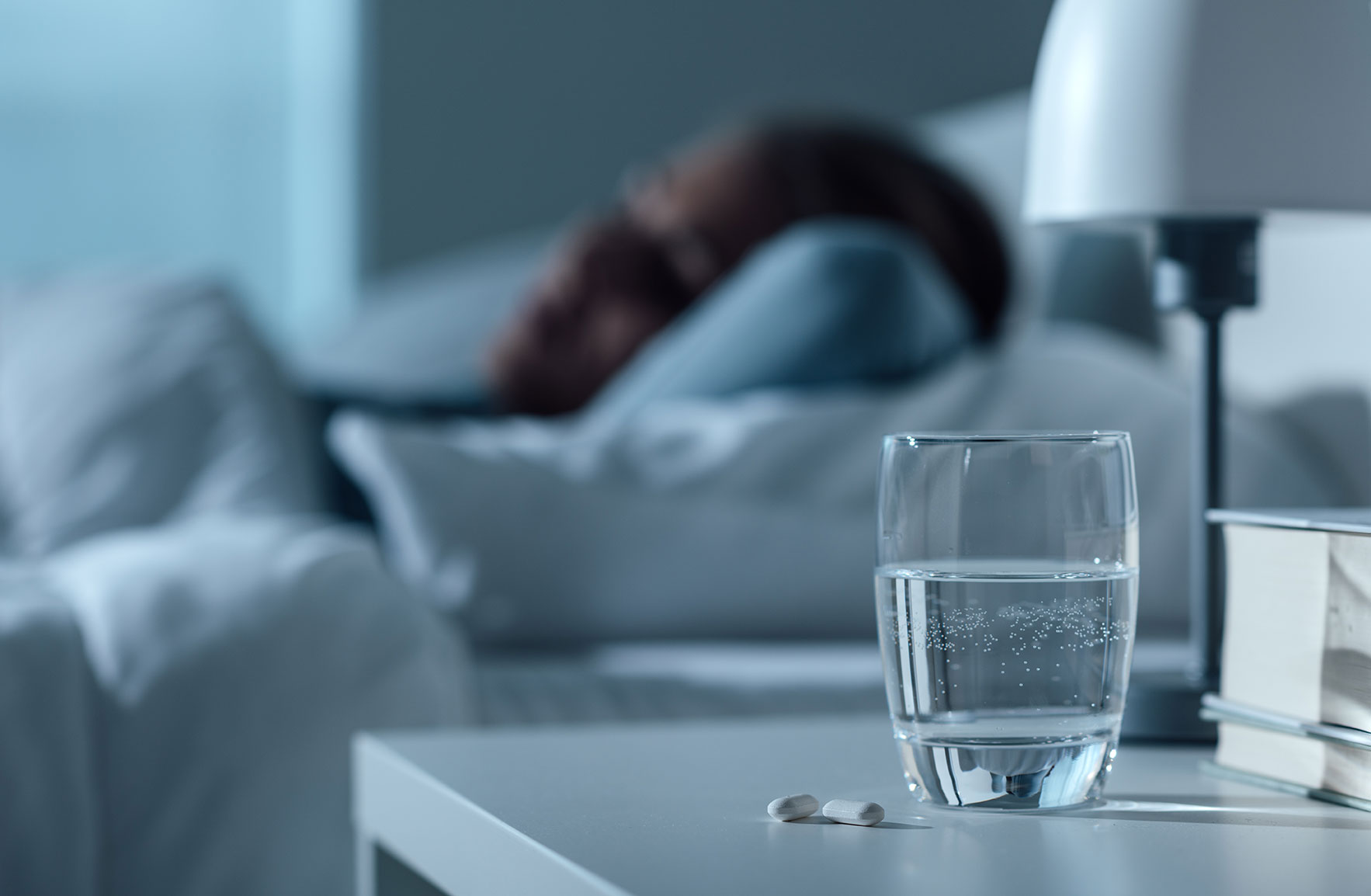The majority of people are aware that taking sleeping pills is not recommended for long-term use, but few really know its effects. The objective here is not to denounce their use, since for various reasons, the temporary use of sleeping pills is often necessary for the restoration of a good state of health.
Sleep is so important to human health that we should make it a priority for any health assessment. At each doctor’s appointment, you should be asked about the quality of your sleep. We will specifically discuss the impact of sleep problems on health, including dementia, weight gain and cardiovascular health, in a future article.
To return to the use of sleeping pills, it is of course their use for the medium/long term that pose health risks. Often, this results from the great difficulty in stopping them given the establishment of an addiction. As mentioned by Dr. Lambert in the 3rd article on aging and the use of medication:
“Ah, you aren’t sleeping well?” We’re going to give you a little something to help you, temporarily… The first thing you notice is that the patient is still taking this medication after ten years.”
You should know that for several medications, the recommended dose for aging people is lower and its use for more than 2 to 3 weeks is not recommended and the patient requires a complete reassessment. In addition, driving is often not recommended for the next 12 hours. For example, taking a sleeping pill at 11 p.m. would require not driving until 11 a.m. the next day.
The best known medications for dependence, addiction or other risk issues, specifically for aging people, are benzodiazepines. The use of these anxiolytic, calming, hypnotic and anticonvulsant drugs is widely used. A recent study has concluded that their long-term use slightly increases the risk of Alzheimer’s (Tapiainen et al, 2018. The risk of Alzheimer’s disease associated with benzodiazepines and related drugs: a nested case-control study).
In addition, the quality of deep sleep phases, including the REM (Rapid Eye Movement) phase, is impaired by these drugs, which is important in limiting the processes of premature aging in regard to cognitive functions. Several studies have demonstrated the importance of dreaming and unfortunately, the use of sleeping pills usually causes less deep, and less restful sleep, without the dream phase.
The main risks associated with prolonged use of sleeping pills in general are:
- increased risk of falling and other impaired psychomotor function,
- memory problems (anterograde amnesia),
- behavioral disorders (e.g. disinhibition),
- altered state of consciousness (hallucinations, euphoria, etc.),
It is important to mention that 20% of hip fractures, caused by falling overnight, will result in death. In addition, the Canadian Geriatrics Society reported in 2017 that only 1 in 13 people would experience the real benefits with a sedative-hypnotic treatment, while 1 in 6 people would develop health issues as a result of these treatments.
For more information on the risks, the Choosing Wisely Canada website, created by the Canadian Medical Association, the University of Toronto, and the St. Michael’s Hospital, is a good reference tool, specifically for older adults.
We should therefore consider improving our lifestyle first and paying attention to certain behaviors that compromise the quality of our sleep. Here is an article from our collaborator, psychologist Stéphane Migneault’s website, on the 7 bad habits that can affect your sleep (French Only).
As for Vitoli® products, two are used for sleep problems: Vitoli® Sleep and Vitoli® Stress and Anxiety. They are used as one or two capsules 30 to 40 minutes before going to bed. Usually Vitoli® Sleep is more effective, but some people prefer to use Vitoli® Stress and Anxiety. It is also possible to use a capsule of each product.
It is always advisable to speak to your pharmacist if you are taking medication. Here are the claims permitted by Health Canada for Vitoli® Sleep:
- Helps reduce the time to fall asleep.
- Helps to increase the total duration and quality of sleep in people with restricted or altered sleep schedules.
- Used in herbal medicine to help sleep.
- Helps relieve nervousness.
- Provides antioxidants.
Do not hesitate to speak with your pharmacist about VITOLI®; they will be able to advise you accordingly.






